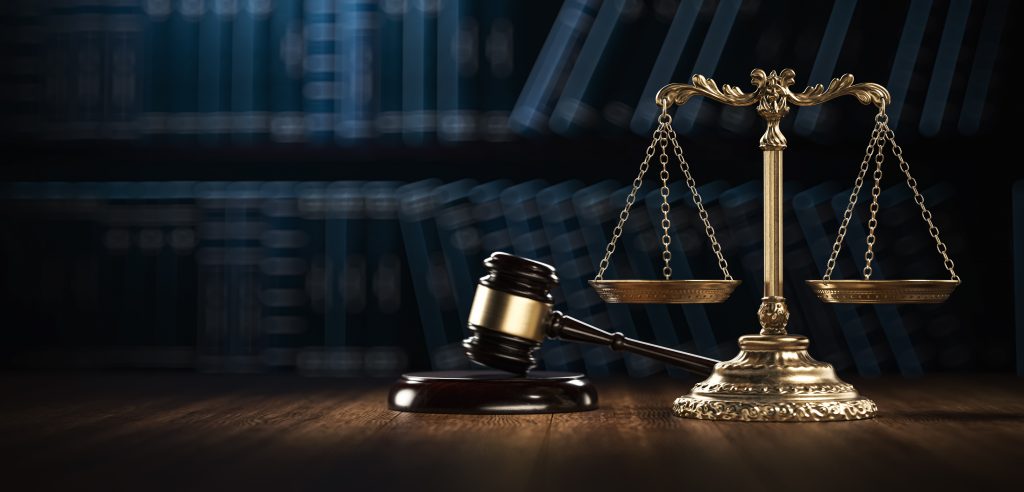Subscriber Benefit
As a subscriber you can listen to articles at work, in the car, or while you work out. Subscribe NowIndiana’s double jeopardy statute does not bar the state from prosecuting a man already convicted in federal court of sexual misconduct with a minor in a Hammond hotel, the Court of Appeals of Indiana affirmed Friday.
According to court records, in early April 2010, Louis Kalozi took four minor children — two male, two female — on a trip from Michigan to Chicago. The group stopped at a hotel in Hammond.
During the night of April 8 and into the morning of April 9, Kalozi slept in the same bed as one of the minor males, A.R.
Kalozi allegedly committed sexual acts in the bed and his conduct was reported to the police.
On April 15, 2010, the state charged Kalozi with two counts of sexual misconduct with a minor.
Then, on Sept. 22, 2010, the federal government charged Kalozi with five criminal offenses.
Count 1 of the indictment alleged transportation of a minor for sexual exploitation.
Kalozi pleaded guilty to two counts in his federal case, including Count 1, and received a 15-year aggregate sentence.
In June 2022, Kalozi was brought to Indiana to face his pending state charges.
Kalozi moved to dismiss, alleging the state-court prosecution subjected him to double jeopardy.
The Lake Superior Court denied the motion and Kalozi sought an interlocutory appeal.
The trial court certified its order and the Court of Appeals accepted jurisdiction.
Kalozi argued the state is barred from prosecuting him on charges of sexual misconduct with a minor following his guilty plea on his federal charges.
The Court of Appeals affirmed the denial of Kalozi’s motion to dismiss and remanded for further proceedings.
Judge Dana Kenworthy wrote the opinion for the appellate court.
According to Kenworthy, because the state and federal governments are considered “separate” or “dual” sovereigns, the double jeopardy provisions of the United States and Indiana Constitutions do not prevent a state prosecution for conduct which was the subject of a prior federal prosecution.
But the state Legislature has provided protection against multiple prosecutions from different jurisdictions through Indiana’s double jeopardy statute, Kenworthy noted.
Kenworthy wrote that, when determining whether a prosecution is barred under Indiana’s double jeopardy statute because it is based on the same conduct, the appellate court does not employ the tests used in a constitutionally based double jeopardy analysis.
“Instead, we consider the ‘overt acts’ alleged in the sister jurisdiction’s charge in juxtaposition with the allegation in the State’s charge,’” Kenworthy wrote, citing Brewer v. State, 35 N.E.3d 284, 286 (Ind. Ct. App. 2015) and Dill v. State, 82 N.E.3d 909, 912 (Ind. Ct. App. 2017).
The portion of Kalozi’s federal indictment alleging he attempted sexual conduct with A.R. was not essential to the federal charge, Kenworthy wrote.
“Rather, Kalozi violated Section 2423(a) once he transported A.R. from Michigan to Indiana with the intent to engage in sexual activity with him,” Kenworthy wrote.
Kenworthy wrote that the operative allegations in these charges are Kalozi either performed or submitted to the fondling or touching of A.R. with intent to arouse or satisfy his or A.R.’s sexual desires.
“This is not the same overt act alleged in Kalozi’s federal charge. So, the State is not statutorily barred from prosecuting Kalozi for sexual misconduct with a minor following his guilty plea to transportation of a minor for sexual exploitation,” Kenworthy wrote.
Judges L. Mark Bailey and Elizabeth Tavitas concurred.
The case is Louis J. Kalozi v. State of Indiana, 22A-CR-2797.
Please enable JavaScript to view this content.

